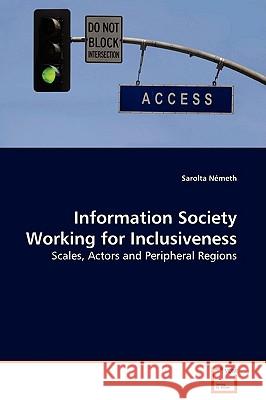Information Society Working for Inclusiveness » książka
Information Society Working for Inclusiveness
ISBN-13: 9783639113105 / Angielski / Miękka / 2009 / 256 str.
The aim of the doctoral dissertation is to find the answer to the broad question: How can the benefits of information and communication technologies and the so-called information society be extended to rural-peripheral regions and communities? In answering the question, a conceptual model of access is developed, which encompasses not only physical access and financial ability to pay, but also the mental aspects of access - such as skills and attitudes - and questions concerning the relevance of content.The strength of the thesis lies in the detailed understanding that is built up of how the information society project is given meaning and relevance to rural areas in the very different contexts of Finland and Hungary. It demonstrates most effectively that there is no single path to follow; the different ways in which the information society is being realised in the rural areas of Finland and Hungary provides ample evidence of the importance of place and of the cultural and social shaping of what at first appears to be a universal and placeless concept. Andrew Gillespie, Professor of Communications Geography, Newcastle University.











